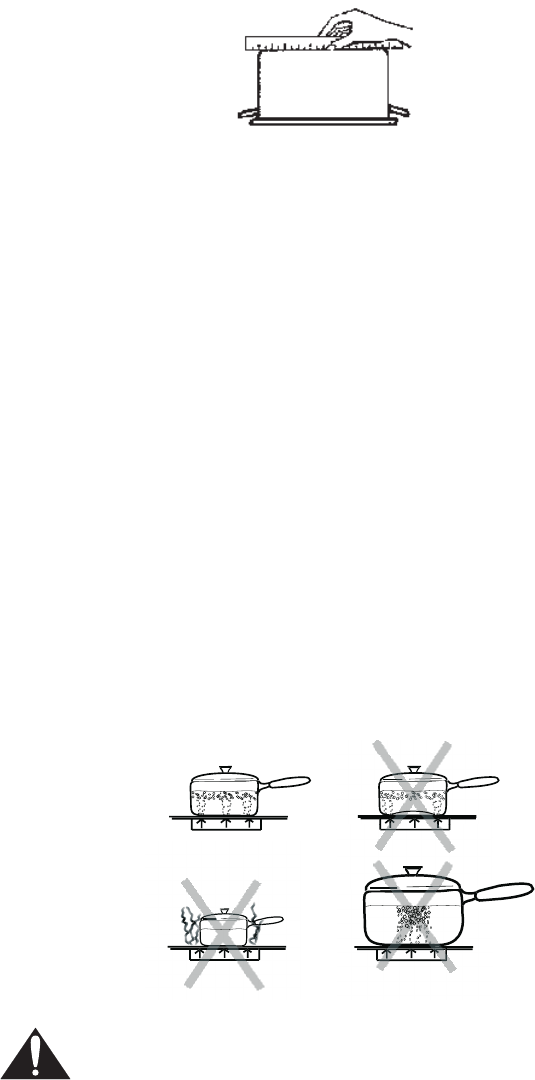
English 6
observe the location of the bubbles as the water starts to boil. Good, flat cookware
will have an even distribution of bubbles over the bottom surface area.
Figure 6 - Testing Flatness
Diameter
The base of the pan should cover or match the diameter of the element being
used. Pans may overhang the element area by 1" (25.4 mm) all around.
Tight Fitting Lid
A lid shortens cooking time by holding the heat inside the pan.
Specialty Pans
Specialty pans, such as griddles, roasters, pressure cookers, woks, water bath
canners and pressure canners must have the same features as described above.
(Use only a flat-bottom wok.) Never place a support ring, such as a wok ring or
trivet, on the cooking surface.
Cookware Practices • Use of pots and pans with rounded (either concave or convex) warped or
dented bottoms should be avoided. See drawings above. • Make sure the bot-
tom of the pot or pan being used is clean and dry.
• Use pots and pans with thick, smooth metal bottoms. • Do not slide metal pots
across the cooktop. Pans may leave marks.
• Do not use glass pans as they may scratch the surface.
Figure 7 - Good Practices
CAUTION:
• Foods packaged in aluminum foil should not be placed directly on the glass
ceramic surface for cooking; aluminum foil can melt and cause permanent
damage.
• Plastic, paper and cloth can melt or burn when in contact with a hot surface.
Do not let these items come in contact with the hot glass ceramic surface.
• Do not allow pans to boil dry. This can permanently damage the pan, the ele-
ment and the cooktop glass.
